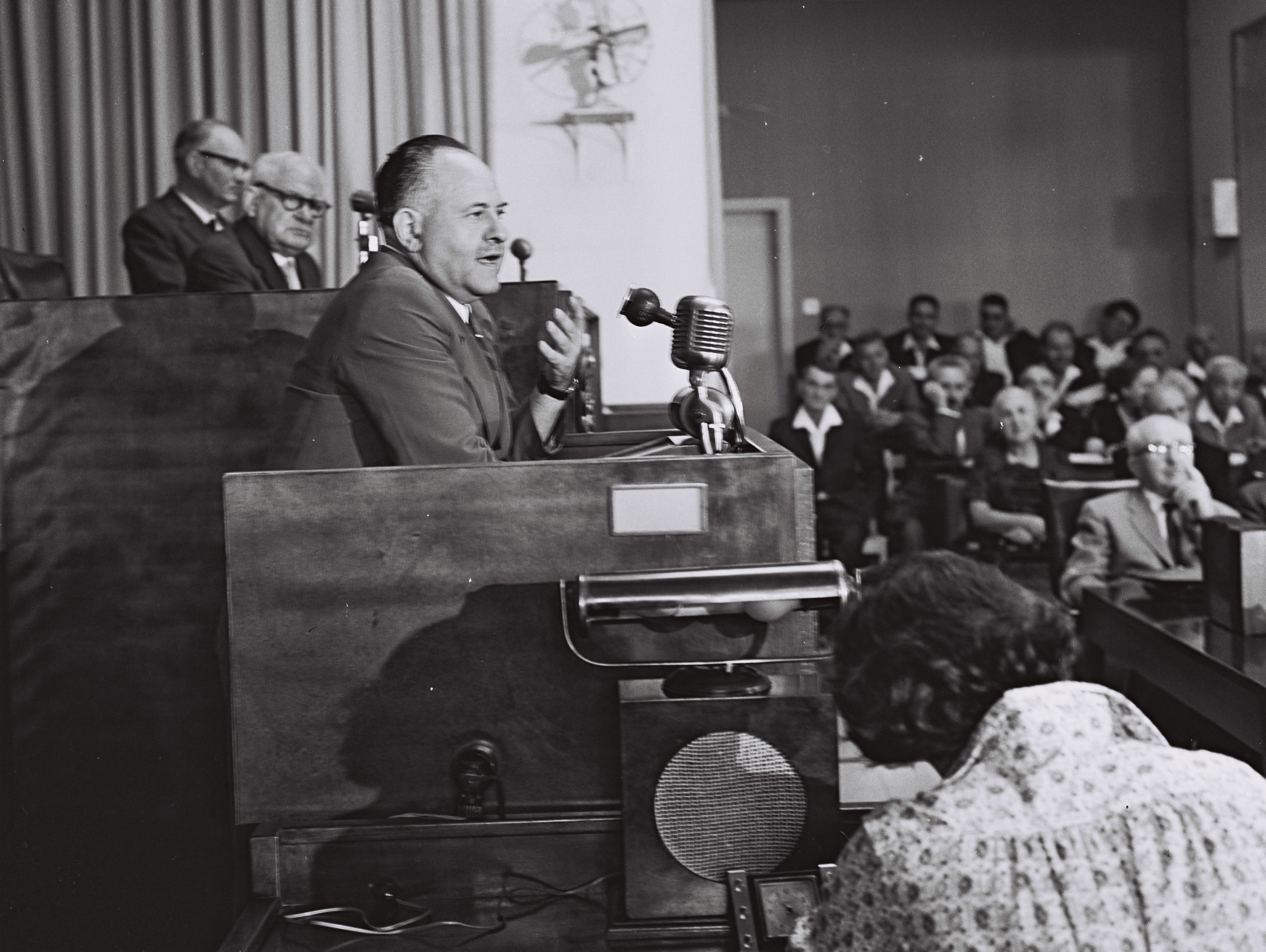|
Jewish Insurgency In Mandatory Palestine
A successful paramilitary campaign was carried out by Zionist underground groups against British rule in Mandatory Palestine from 1944 to 1948. The tensions between the Zionist underground and the British mandatory authorities rose from 1938 and intensified with the publication of the White Paper of 1939. The Paper outlined new government policies to place further restrictions on Jewish immigration and land purchases, and declared the intention of giving independence to Palestine, with an Arab majority, within ten years. Though World War II brought relative calm, tensions again escalated into an armed struggle towards the end of the war, when it became clear that the Axis powers were close to defeat. The Haganah, the largest of the Jewish underground militias, which was under the control of the officially recognised Jewish leadership of Palestine, remained cooperative with the British. But in 1944 the Irgun launched a rebellion against British rule, thus joining Lehi, which ... [...More Info...] [...Related Items...] OR: [Wikipedia] [Google] [Baidu] |
Sectarian Conflict In Mandatory Palestine
The intercommunal conflict in Mandatory Palestine was the civil, political and armed struggle between Palestinian Arabs and Jewish Yishuv during the British rule in Mandatory Palestine, beginning from the violent spillover of the Franco-Syrian War in 1920 and until the onset of the 1948 Arab–Israeli War. Background Zionist movement during Ottoman period Zionist leaders and advocates followed conditions in the land of Israel closely and travelled there regularly. Their concern, however, was entirely with the future of Jewish settlement. The future of the land's Arab inhabitants concerned them as little as the welfare of the Jews concerned Arab leaders. During the movement's formative stages, Zionist negotiators with stronger political powers (such as the British) corresponded enthusiastically while remaining silent about the inhabitants of Palestine, who numbered just under half a million during the late 19th century. According to Anita Shapira, among 19th and early 20th cen ... [...More Info...] [...Related Items...] OR: [Wikipedia] [Google] [Baidu] |
Guard Corps (Haganah)
Heil Mishmar } was the guard corps of the Haganah, a Jewish paramilitary organization in Mandatory Palestine. History HIM was founded in 1939, following the 1936–1939 Arab revolt in Palestine. It included mostly older and less healthy soldiers (usually between 35 and 50), while those who were able to participate in field combat were drafted into the Field Corps and later also Palmach. At the end of World War II World War II or the Second World War, often abbreviated as WWII or WW2, was a world war that lasted from 1939 to 1945. It involved the vast majority of the world's countries—including all of the great powers—forming two opposin ..., the Guard Corps consisted of more than 30,000 members country-wide. It was responsible for guarding Jewish villages from attacks, especially by Arab gangs. References Haganah units {{israel-mil-stub ... [...More Info...] [...Related Items...] OR: [Wikipedia] [Google] [Baidu] |
Yisrael Galili
Yisrael Galili ( he, ישראל גלילי; 10 February 1911 – 8 February 1986) was an Israeli politician, government minister and member of Knesset. Before Israel's independence in 1948, he served as Chief of Staff of the Haganah. Biography Yisrael Berchenko (later Galili) was born in the town of Brailiv in the Russian Empire (now Ukraine). His family immigrated to Palestine when he was three years old and settled in Tel Aviv. Galili attended school there and apprenticed with a printer. Galili was a founder of the HaNoar HaOved ("Working Youth") youth group, and of Na'an, a kibbutz where he lived until his death. Military career Galili began his military career in 1927, when he enlisted in the Haganah. He was appointed to the organization's leadership committee in 1935, and was later placed in charge of Acquisitions and Armaments. During the Second World War, he was involved in preparations to counter an anticipated German invasion of Palestine. He was appointed Chief of St ... [...More Info...] [...Related Items...] OR: [Wikipedia] [Google] [Baidu] |
Moshe Sneh
Moshe Sneh ( he, מֹשֶׁה סְנֶה ; 6 January 1909 – 1 March 1972) was a Haganah commander and an Israeli politician. One of the founders of Mapam, he later joined the Israeli Communist Party (Maki). Biography Mosze Klaynboym (later Sneh) attended high school in Poland before studying natural sciences, mathematics and medicine at the University of Warsaw, gaining an MD in 1935. Whilst a student, he was a member of the ''Yardinia'' Zionist student organisation, becoming its chairman in 1926, and was also chairman of the Medical Jewish Students Union. He became the editor of the ''Nowe Słowo'' newspaper in 1931, and the political editor of ''Haynt'' in 1933. In 1932 he was elected to the central committee of the Zionist Federation of Poland, and was a leader of the radical Zionists. In 1935 he also became a member of the Zionist Executive Committee. He worked as a doctor until 1939, including in the Polish Army following the outbreak of World War II, and immigrate ... [...More Info...] [...Related Items...] OR: [Wikipedia] [Google] [Baidu] |
Nathan Yellin-Mor
Nathan Yellin-Mor ( he, נתן ילין-מור, Nathan Friedman-Yellin; 28 June 1913 – 18 February 1980) was a Revisionist Zionist activist, Lehi leader and Israeli politician. In later years, he became a leader of the Israeli peace camp, a pacifist who supported negotiations with the Palestine Liberation Organization and concessions in the Israeli-Arab conflict. Biography Nathan Friedman-Yellin was born in Grodno in the Russian Empire (now Belarus). He studied engineering at the Warsaw Polytechnic. He was active in Betar and Irgun in Poland. Between 1938 and 1939 he was the coeditor, along with Avraham Stern (Yair), of ''Di Tat'' ("The Action "), the Irgun's newspaper in Poland. Zionist activism He Aliyah, immigrated clandestinely to the Mandatory Palestine, British Mandate of Palestine and joined Lehi Lehi (; he, לח"י – לוחמי חרות ישראל ''Lohamei Herut Israel – Lehi'', "Fighters for the Freedom of Israel – Lehi"), often known pejorati ... [...More Info...] [...Related Items...] OR: [Wikipedia] [Google] [Baidu] |


.jpg)